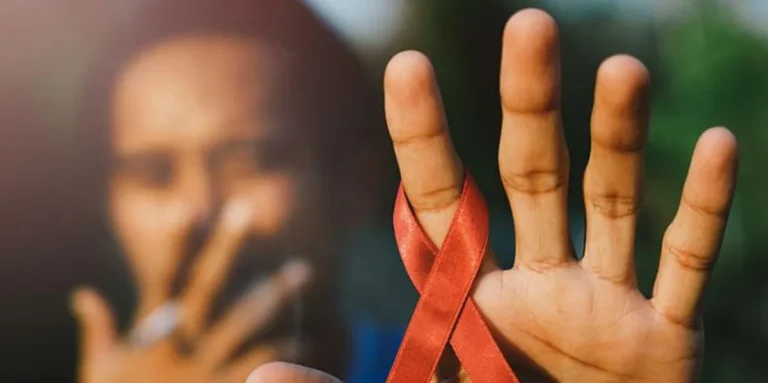How Long Can STDs Live on Towels, Sheets, and Underwear?
Sexually transmitted diseases (STDs) are a serious health concern that can affect anyone who is sexually active. While many people focus on preventing STDs through safe sex practices, there are other lesser-known ways these infections can spread. One of the most common questions surrounding STDs is how long they can survive outside the body, especially on towels, sheets, and underwear. Understanding this can help reduce the risk of transmission and keep your home and personal items safe.
In this article, we’ll dive deep into how long STDs live on towels, sheets, and underwear, the factors that influence their survival, and how to keep your living space hygienic. Plus, if you’re in need of support, we’ll discuss STD clinics in Jacksonville and how Hope Across The Globe can assist you with reliable healthcare resources.
How Do STDs Spread?
Before diving into how long STDs can survive on various fabrics, it’s important to understand how these infections are typically transmitted. Most STDs are spread through sexual contact. This includes vaginal, anal, and oral sex. Some STDs, like herpes, can also spread through skin-to-skin contact, even when no symptoms are present.
However, not all STDs are spread easily through surfaces like towels or sheets. The risk of transmission outside of the human body depends largely on the type of STD, environmental factors, and the presence of fluids.
STDs Live on Towels: How Long Are They Contagious?
Towels are a common household item, and many people use them to wipe off after a shower or after sexual activity. If an STD is present in bodily fluids like semen, vaginal fluids, or blood, the next question is: how long can these germs live on towels?
The Survival Time of STDs on Towels
In general, STDs do not live long on dry surfaces. Many pathogens, including those that cause STDs, need a moist or warm environment to survive. This makes towels—especially those that are moist from sweat or bodily fluids—more likely to harbor bacteria or viruses for a short period.
- HIV: HIV cannot survive long outside of the human body. Once exposed to air, it begins to lose its ability to infect within minutes. While it might survive briefly on towels or other surfaces, it is highly unlikely to transmit in this way.
- Chlamydia and Gonorrhea: These bacterial infections are typically transmitted through sexual fluids. They do not survive long on towels, especially once the fabric is dry. The bacteria can survive a little longer in a moist environment, but transmission through towels is extremely rare.
- Herpes: The herpes simplex virus (HSV) is a bit different. While HSV can live on surfaces for a short time, it typically requires direct skin-to-skin contact for transmission. However, if towels are heavily contaminated with fluids, there’s a very small chance the virus could survive for a brief period, especially in a moist environment.
- HPV: The human papillomavirus (HPV) is another STD that primarily spreads through direct contact. HPV does not live long on towels and requires skin-to-skin contact for transmission. It is unlikely to spread through towels unless they are directly contaminated with infected fluids.
How to Reduce the Risk of STDs on Towels
To keep your towels free from potential STD transmission, it’s essential to wash them regularly. Using hot water and detergent can help kill germs that might be present. Avoid sharing towels after sexual activity, especially if you have an active infection. If you or a partner are diagnosed with an STD, using separate towels can help reduce the risk of cross-contamination.
STDs Live on Sheets: Is There a Risk?
Sheets are another household item that can come into contact with sexual fluids. Since we spend so much time in bed, it’s crucial to understand the risk of STDs living on sheets and how to maintain a clean and safe sleeping environment.
The Survival Time of STDs on Sheets
Sheets are often exposed to moisture during sleep, either from sweat or sexual fluids. Here’s a breakdown of how long STDs can live on sheets:
- HIV: Like with towels, HIV does not survive long on sheets or any other surface outside of the body. The virus is extremely fragile once exposed to air, and transmission through sheets is virtually impossible.
- Chlamydia and Gonorrhea: These bacterial infections can survive on sheets for a short period of time, particularly if there are fluids present. However, since these infections are primarily spread through direct sexual contact, the risk of transmission through sheets is low.
- Herpes: Herpes can survive on a surface for a brief period, but the virus needs direct skin contact to spread. Even if herpes lesions are present, transmission through sheets is unlikely unless there is close contact with contaminated areas. Washing sheets regularly can reduce the risk of spreading herpes.
- HPV: As with towels, HPV does not survive well on sheets. It requires skin-to-skin contact for transmission, so the chance of catching it from sheets is very low.
Keeping Sheets Clean and Safe
To minimize the risk of STD transmission through sheets, it’s essential to wash them frequently. Make sure to use hot water and a good detergent to kill any potential germs. If you or your partner are diagnosed with an STD, change your sheets after each sexual encounter and ensure that you follow proper hygiene practices.
STDs Live on Underwear: What You Need to Know
Underwear is another item that frequently comes into contact with sexual fluids. Whether you’re wearing them during sex or simply using them as part of your daily routine, it’s important to understand how long STDs can survive on underwear.
The Survival Time of STDs on Underwear
Underwear is generally worn close to the body, making it more likely to come into direct contact with fluids from the genitals or anus. Here’s how long STDs can survive on underwear:
- HIV: Just like with towels and sheets, HIV does not survive long on underwear. The virus requires a moist and warm environment to survive, but the fabric of underwear does not provide this for long periods. The risk of transmission through underwear is minimal.
- Chlamydia and Gonorrhea: These bacterial infections can survive for a short time on underwear, but they are unlikely to transmit unless there is direct contact with infected fluids. Washing underwear in hot water will help eliminate any bacteria that might be present.
- Herpes: Herpes can survive on moist surfaces for a short period, but the risk of transmission through underwear is low. The virus needs skin-to-skin contact for transmission, so it’s unlikely to spread through contaminated underwear unless there’s close contact.
- HPV: Like herpes, HPV requires direct skin-to-skin contact for transmission. While the virus may be present in sexual fluids, it doesn’t survive long on underwear. The risk of transmission through underwear is minimal.
Proper Care for Underwear
To reduce the risk of spreading STDs through underwear, it’s important to wash them regularly. Use hot water and detergent to ensure that any bacteria or viruses are eliminated. If you or your partner are diagnosed with an STD, make sure to wear clean underwear and avoid sharing it with others.
Can STDs Be Spread Through Touching Contaminated Items?
While it’s theoretically possible for an STD to spread through touching contaminated towels, sheets, or underwear, it’s highly unlikely. Most STDs require direct contact with infected fluids or skin for transmission. The risk of catching an STD through casual contact with an item like a towel or piece of clothing is extremely low.
However, if you or a partner are dealing with an active infection, it’s always better to err on the side of caution. Avoid sharing personal items, wash them regularly, and practice good hygiene.
Seeking Help at Clinics
If you suspect you may have been exposed to an STD or if you’re experiencing symptoms, it’s important to seek professional help. STD clinics in Jacksonville offer a range of services, from testing and diagnosis to treatment and counseling. Hope Across The Globe is committed to providing reliable healthcare resources and support, so you can make informed decisions about your sexual health.
Why Regular Testing Matters
Getting tested regularly for STDs is crucial for maintaining your health and preventing the spread of infections. Even if you don’t have symptoms, some STDs can be present in your body without obvious signs. Regular testing at STD clinics can help detect infections early and allow for prompt treatment, reducing the risk of complications and transmission to others.
Conclusion
While it’s unlikely for STDs to live for long periods on towels, sheets, or underwear, practicing proper hygiene and washing these items regularly can reduce the risk of transmission. If you or your partner are diagnosed with an STD, taking precautions such as using separate towels and changing sheets frequently can help prevent the spread of infection.
For those in need of medical advice or support, STD clinics in Jacksonville, like Hope Across The Globe, are available to provide resources and healthcare services. By staying informed and taking the necessary steps to protect yourself, you can reduce the risk of STD transmission and maintain a healthy lifestyle.






